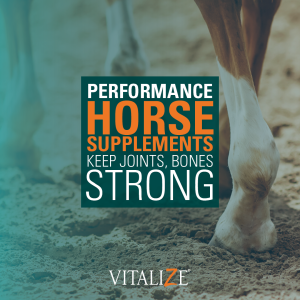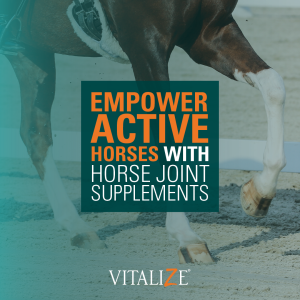
Horse inflammation treatment typically involves a combination of management strategies, veterinary care and supportive therapies tailored to the underlying cause and severity of the inflammation. Here are some common approaches used to treat inflammation in horses:
Horse Inflammation Treatment Options
1. Identify and Address the Underlying Cause
The first step in treating inflammation in horses is to identify and address the underlying cause or trigger. This may involve conducting diagnostic tests including blood analysis, imaging studies such as radiography or ultrasound, joint fluid analysis and/or bacterial cultures to determine the root cause of the inflammation. These tests can determine if the inflammation is due to injury, infection, metabolic disorder or other factors.
2. Anti-Inflammatory Medications
Nonsteroidal anti-inflammatory drugs (NSAIDs), such as phenylbutazone (bute), flunixin meglumine (Banamine), and firocoxib (Equioxx), are commonly used to reduce inflammation, alleviate pain and improve comfort in horses. NSAIDs work by inhibiting the production of inflammatory mediators and prostaglandins that contribute to pain and swelling.
These medications should be used under veterinary supervision and with careful consideration of potential side effects. A variety of these medications are available from your veterinarian. They may require regular usage for maximum effect and may have other side effects that could impact your horse’s health or performance.
3. Cold Therapy
Cold therapy, such as icing or cold hosing, can help reduce inflammation and swelling in acute injuries or localized areas of inflammation. Applying cold packs or cold water to the affected area helps constrict blood vessels, decrease tissue swelling and may provide pain relief.
Cold therapy is most effective the first 48 hours after an injury. It should be applied intermittently and for short durations to prevent tissue damage or frostbite.
4. Rest and Reduced Activity
Rest and reduced activity are essential components of inflammation management, especially in cases of musculoskeletal injuries or overexertion. Limiting movement and providing ample time for healing allow injured tissues to repair and inflammation to subside. Gradual reintroduction of exercise and activity should be guided by veterinary recommendations to prevent reinjury or exacerbation of inflammation.
5. Joint Injections
Intra-articular injections of corticosteroids or hyaluronic acid may be recommended for horses with inflammatory joint conditions, such as osteoarthritis or synovitis. These injections help reduce inflammation, improve joint lubrication and alleviate pain by delivering medication directly into the affected joint space. Joint injections are performed by a veterinarian using a sterile technique and appropriate medications.
6. Nutritional Support
Providing horses with a balanced diet rich in essential nutrients, antioxidants and omega-3 fatty acids can help support immune function, reduce oxidative stress and promote tissue repair.
Consider feeding ingredients like hyaluronic acid, glucosamine and chondroitin sulfate to support joint health and reduce inflammation in horses with musculoskeletal issues.
Good Health Begins With Good Nutrition
At BioZyme®, animal health and nutrition are our expertise. We include the gold standard of hyaluronic acid, MHB3® Hyaluronan, in Vitalize® Hyaluronex® Joint. Vitalize Hyaluronex Joint is a liquid product for horses designed to support sustainable soundness using hyaluronic acid and antioxidants.
Hyaluronex Joint helps maintain a normal inflammatory response and supports normal exercise recovery. It supports bone, joint and soft tissue health. But most importantly, it contains MHB3, a high molecular weight hyaluronic acid that has been awarded 8 U.S. Patents.
There are many hyaluronic acids on the market. However, what makes MHB3 unique is its liquid formulation. Because HA molecules are extremely water-loving, they can hold up to 1,000 times their weight in water. Dry forms of HA (pills, tablets, capsules and powders) do not have enough time to fully hydrate before being passed through the body’s digestive tract. Essentially, the body struggles to thoroughly absorb dry forms, making them much less effective.
7. Topical Treatments
Topical therapies like anti-inflammatory creams, liniments or poultices, may be used to help alleviate pain and inflammation in localized areas, such as sore muscles or swollen joints. These products typically contain ingredients like menthol, camphor or herbal extracts that provide cooling or warming effects and promote circulation.
8. Physical Therapy and Rehabilitation
Physical therapies including massage, stretching, therapeutic exercises and controlled movement, can help improve circulation, reduce muscle tension and enhance tissue healing in horses recovering from inflammation. Working with a certified equine rehabilitation therapist or veterinary physiotherapist can help develop a customized rehabilitation program tailored to the horse’s specific needs.
9. Supportive Care and Monitoring
Provide supportive care, such as comfortable bedding, appropriate turnout and environmental modifications, to promote rest, comfort and healing for horses recovering from inflammation. Monitor the horse’s condition closely for signs of improvement or worsening and consult with a veterinarian for guidance on treatment adjustments or additional interventions as needed.
10. Surgical Intervention
In cases of severe inflammation or underlying conditions requiring surgical intervention, such as infected wounds, joint infections, or gastrointestinal disorders, surgical procedures may be necessary to address the problem and facilitate healing. Surgical treatment options should be discussed with a veterinarian and pursued when deemed appropriate based on the horse’s condition and prognosis.
Overall, horse inflammation treatment options require a comprehensive approach that addresses the underlying cause, helps alleviate pain and discomfort, promotes tissue healing and supports the horse’s overall well-being.
Collaboration with a knowledgeable veterinarian and adherence to recommended treatment protocols are essential for achieving positive outcomes and optimizing the horse’s recovery and long-term health.
Learn more about Vitalize
If you are interested in learning more about Vitalize Hyaluronex Joint and MHB3 Hyaluronan, read our educational blogs or sign up for our regular newsletter.
We offer more than just joint support. We also provide supplements to give your horse a #goodgutfeeling. Learn more about all of our products and discover which product is right for your horse with our Vitalize Equine Health Quiz.
Do you want to purchase Vitalize products for your equine companion? Buy online.
Maybe you prefer to shop from a local retailer. Find a Vitalize dealer near you.

